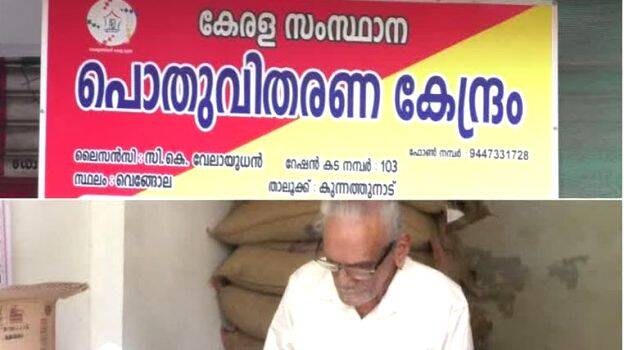

Providing rice and essential items at fair prices alone is not enough—making them accessible to the maximum number of people is what makes the government’s market intervention more effective. With this aim, the Food and Civil Supplies Department is considering making items currently sold at subsidised rates through Supplyco outlets available through ration shops as well. In short, every ration shop could soon function like a Maveli Store. The plan will not only expand Supplyco’s service network but also provide additional income for ration dealers. At present, 13 products, including rice varieties, sugar, coconut oil, urad dal, pulses, and chillies, are available at subsidised rates through Supplyco. Even branded consumer products are cheaper there compared to the open market. Extending this benefit through ration shops could bring a major change to the public distribution system.
The news regarding this revolutionary plan was first reported yesterday by Kerala Kaumudi through journalist Kovalam Satheesh Kumar. Ration dealers will only have to provide the facility to sell Supplyco products—no advance payment is required. They can pay Supplyco after selling the goods. There are currently 13,914 ration shops in the state. Under Supplyco, in addition to regular Maveli Stores, there are also People’s Bazaars and Supplyco Supermarkets in select locations. If Supplyco services become available through ration shops, it would mean that the government’s market interventions would reach deeper into the interior regions of the state. For ration dealers, who now distribute only limited items to cardholders, this would also mean higher commissions and more income.
However, there is concern that if all products available at Maveli Stores are also sold through ration shops, the relevance of Maveli Stores could be questioned, putting the jobs of thousands of employees at risk. This worry is natural and valid. People may ask why two different institutions are needed to provide the same service. Therefore, job security of Supplyco employees must be ensured before rolling out the new system. Along with reaching more people with fair-priced goods, it is equally important to safeguard the jobs of existing employees. At the same time, this concern alone should not prevent much-needed reform.
To market hundreds of Supplyco products through ration shops, adequate space, additional staff, and supporting infrastructure will be required. Consultations and studies are needed to determine how these can be effectively managed. If redeployment of current Supplyco employees is required, it must be done carefully, without creating grievances. This calls for discussions with employees’ unions, identifying staff willing to be redeployed, and ensuring job protection for those who are not. In short, the plan should both achieve its goal of wider access to fair-priced goods and address the concerns of Maveli Store employees. If implemented efficiently, it could mark a new revolution in Kerala’s public distribution system by integrating ration shops and fair-price outlets.